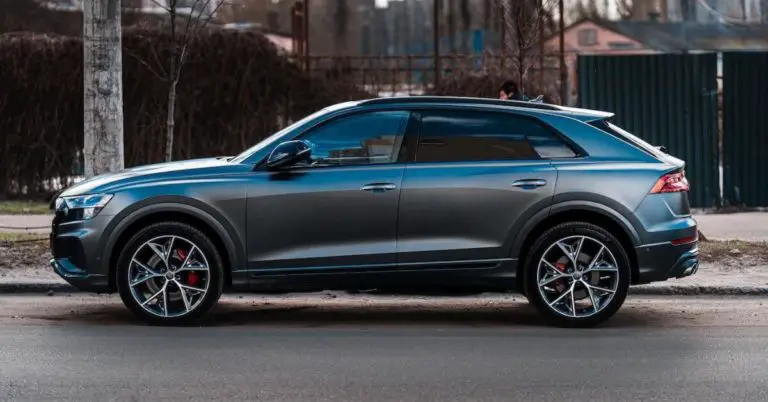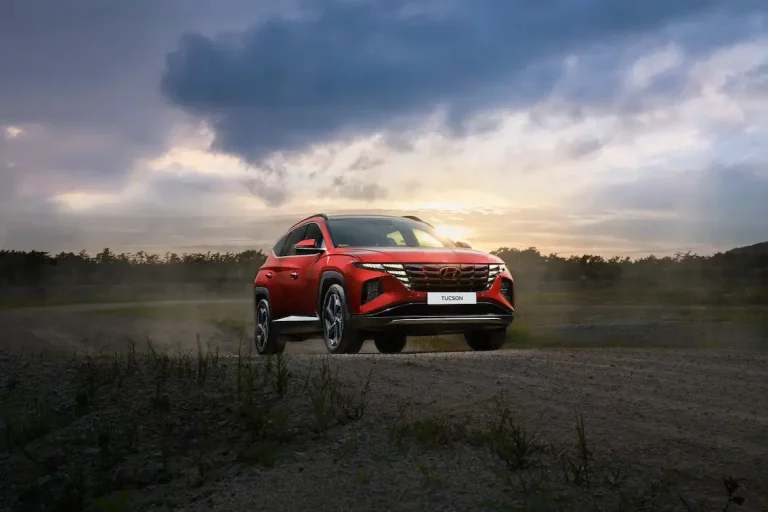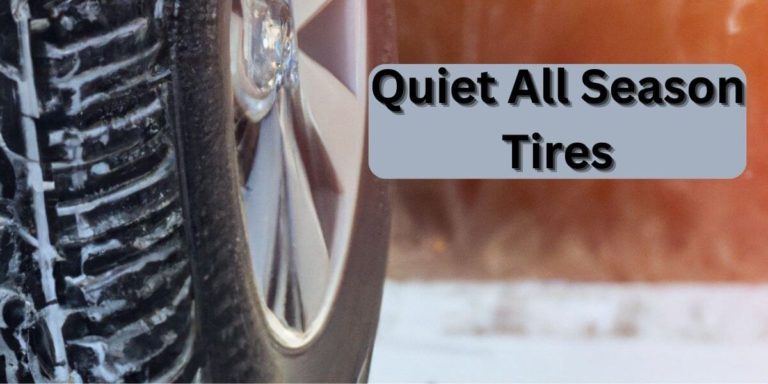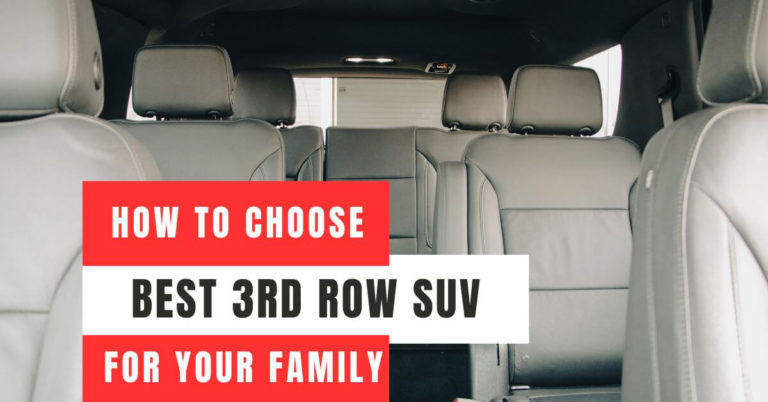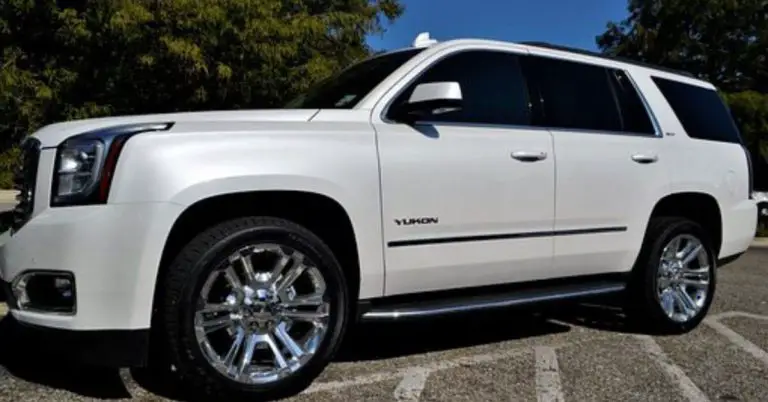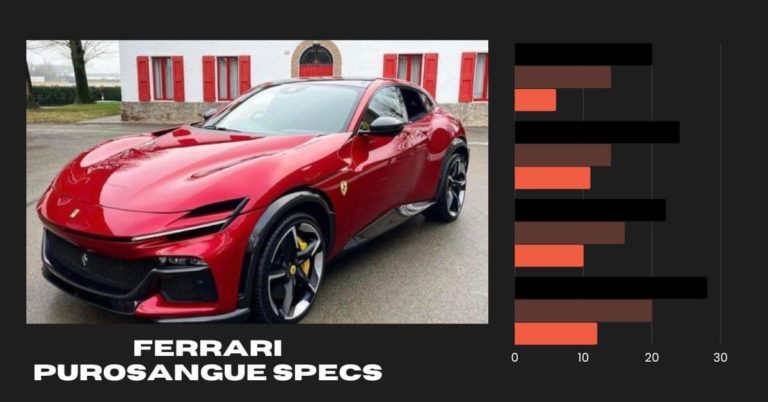Guide To SUV Camping | Roaming The Great Outdoors
If you love camping but want to keep the creature comforts of your home, SUV camping might be the perfect option.
SUV camping is a form of car camping that involves sleeping in your vehicle or using it as a base for your tent.
It’s a great way to explore the outdoors without compromising space, power, or convenience.
Camping has become more popular in recent years as more people seek ways to escape the hustle and bustle of everyday life and reconnect with nature.
However, only some people will be sleeping on the ground or dealing with the hassle of setting up and taking down a campsite.
SUV camping offers a happy medium between these two extremes – you can enjoy the beauty and tranquility of nature while still having access to modern amenities like electricity or running water.
I’ve been an avid SUV camper for several years, and it’s my favorite way to roam outdoor adventures.
There’s something exhilarating about hitting the road with a fully equipped vehicle that can take me anywhere I want to go.
Table of Contents
The Rise of SUV Camping
So, what makes it so appealing to outdoor enthusiasts? There are several reasons why camping has become more popular in recent years.
One of them is how easy it is to find an SUV that suits your needs as a camper.
With more and more companies offering off-road packages for their vehicles (like Jeep’s Rubicon line), you can easily find an SUV that can handle any terrain or weather condition.
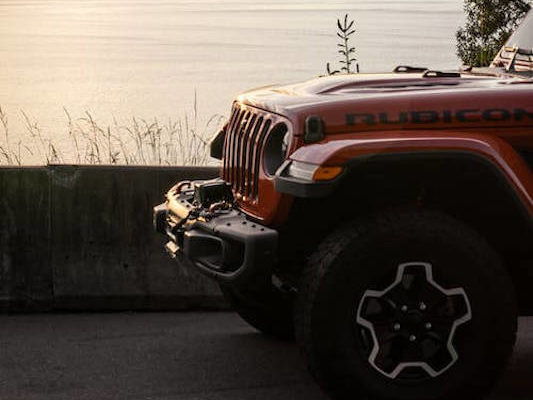
Whether you prefer a rooftop tent, a pop-up tent, or a sleeping platform with a sleeping bag in your cargo area, you can customize your SUV to fit your camping style.
Another reason is flexibility.
Unlike traditional tent camping, where you have to rely on pre-existing campsites and potentially crowded or noisy areas, camping in your SUV allows you to camp wherever you want (as long as it’s legal and safe).
Related Article: SUV Rooftop Tents: The Camping Revolution You Can’t Miss!
Overnight parking in national parks, dirt roads, or parking lots (with permission). Plus, since you’re not towing anything behind you, you can explore different places and routes more freely.
Personal Experience with Car Camping
As someone who loves spending time outdoors, I’ve tried many different camping methods – from backpacking to RVing.
However, over time I’ve realized that an SUV is the best balance between convenience and immersion in nature.
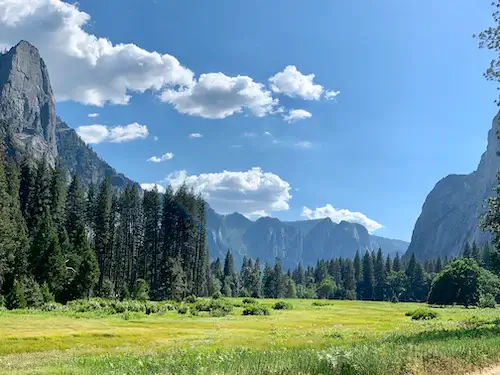
My current setup consists of a mid-sized SUV with a rooftop tent and some essential camping gear (like a portable stove, an air mattress, and a first aid kit).
With this setup, I can comfortably sleep anywhere – whether in the middle of a national park or on the side of a road.
Discover the comfort of snoozing in SUVs in our newest article, where we also unravel the diverse laws that apply to this practice across all 50 states.
One of the things I love about SUV camping is how fast and easy it is to set up and break down my campsite.
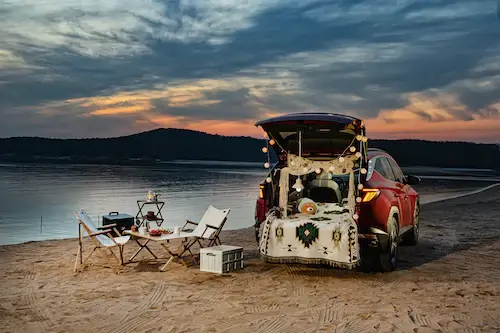
Unlike RVing, which requires more time and effort to set up (like leveling your vehicle), with an SUV, I can park and get ready for whatever adventure awaits me.
Plus, since I’m not towing anything behind me, there are fewer restrictions on where I can go.
Related Article: SUV Tents For Camping | Transform Your SUV Into A Luxury Campsite!
Overall, an SUV/mini camper is one of the best affordable options to experience the outdoors without sacrificing comfort or convenience.
In the following sections, we’ll explore some key factors to consider when choosing an SUV for camping and what gear you’ll need to make your experience as enjoyable as possible.
Choosing the Right Vehicle
Size and Space Considerations
One of the main factors to consider when choosing an SUV for camping is size and space. You want an SUV with enough room for you, your passengers, and your camping gear.
You also want enough space to sleep comfortably in your vehicle or tent.
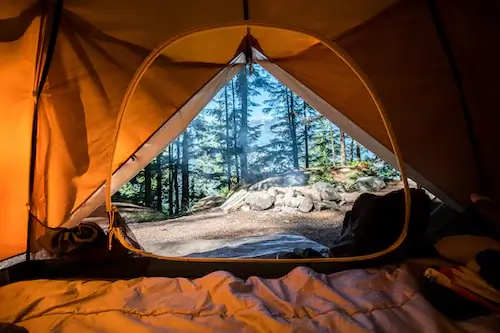
The size and space of the SUV you need will depend on how many people you plan on camping with and how much gear you plan on bringing.
A smaller SUV like the Subaru Forester or Honda CR-V might be ideal for solo travelers or couples with little space.
Related Article: How to Choose the Best SUV with 3rd Row Seating for Your Family
They are compact yet spacious enough to sleep in the back seats or a rooftop tent. They also have excellent gas mileage and fuel efficiency, making them affordable options for long-distance trips.
However, if you’re camping with a larger group or have a lot of gear, you may opt for a larger best SUVs like the Toyota Highlander or Ford Expedition with much more room.
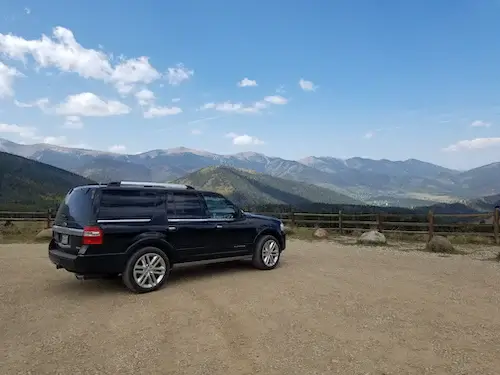
These vehicles have more storage space and can accommodate more sleeping area.
For example, the sleeping platform, sleeping pad, and more room for a sleeping bag, power station, air mattress, or more comfortable bed-foam mattress.
Their roof is also much bigger; you can use it for a solar panel, and roof racks are useful for mounting rooftop tents.
You can also use them as a base for a pop-up or SUV tent that attaches to the vehicle’s rear.
They also have more power and towing capacity, making them suitable for hauling trailers or boats.
Off-Road Capabilities
Another factor to consider when choosing an SUV for camping is its off-road capabilities.
To explore remote areas and dirt roads, you’ll need an SUV to handle any terrain or weather condition.
Look for models with four-wheel drive systems and locking differentials that provide better traction and control over rough terrain.
Related Article: How to Choose the Best SUV for Snow and Ice Driving
Some of the best vehicles for off-road camping are the Jeep Wrangler, the Toyota Tacoma, and the Chevrolet Colorado ZR2.
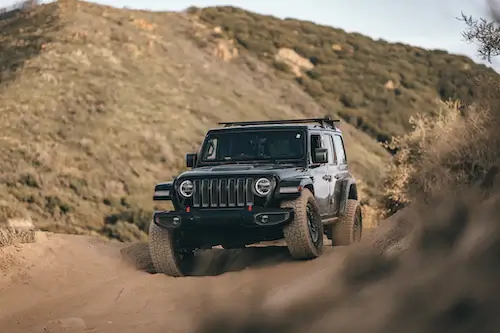
These vehicles are designed specifically for off-road adventures and have features like skid plates, tow hooks, and high-ground clearance.
They can also carry more weight and handle steeper inclines than other models.
Air Suspension: Enhancing Your Camping Experience
While we’ve discussed the numerous advantages and the functioning of air suspension systems, it’s also important to consider how these systems might enhance your camping experience.
SUVs equipped with air suspension systems provide a smooth ride on uneven terrains and offer unmatched versatility for any occasion, including camping trips.
In our article, SUVs with Air Suspension – A Revolutionary Game-Changer!
We explore this topic in detail, discussing how SUVs with air suspension systems can transform your camping experience.
Understanding these aspects is crucial for ensuring the longevity and performance of your SUV, especially if it’s equipped with an air suspension system.
Remember also about the air compressor!
Gas Mileage and Fuel Efficiency
A final factor to consider when choosing an SUV for camping is its gas mileage and fuel efficiency.
Gas can quickly add up when traveling long distances in an SUV, so you’ll want to choose a model that doesn’t consume too much fuel.
Smaller models like the Subaru Outback or Honda CR-V are known for their excellent gas mileage, making them ideal choices for those looking to save money on fuel.
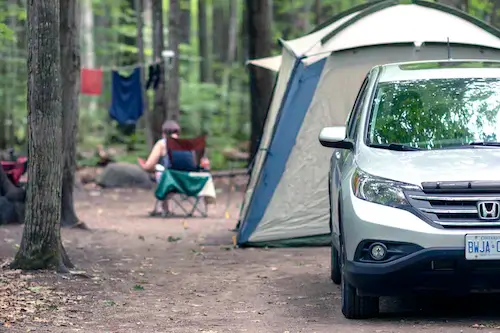
Larger models like the Ford Expedition or Chevrolet Tahoe will consume more gas but offer more space and power.
Ultimately, you’ll need to decide what’s more critical – space or fuel efficiency.
If you plan on making many camping trips in the future and traveling long distances, then opting for a model with better fuel efficiency might be the wiser choice in the long run.
For those who love the great outdoors, understanding the differences between CUVs and SUVs can help you choose the best vehicle for your camping adventures.
Essential SUV Camping Accessories
Tents and Sleeping Arrangements
The Key to a Good Night’s Sleep
One of the first things you must consider when planning your SUV camping trip is where you will sleep.
While some people prefer to sleep in the back of their vehicle, others prefer a separate sleeping area.
A tent is an absolute must-have if you fall into the latter category.
When choosing a tent for an SUV, it’s essential to consider factors such as size, weight, and ease of setup.
Camping TentsRegarding size, you want something that can comfortably accommodate everyone sleeping in the tent.
A 4-person tent usually works well for two adults, two children, or three adults.
However, if you bring pets or extra gear inside, go up a size. As for weight and ease of setup – these are crucial factors when camping with an SUV.
Look for lightweight tents that are easy to pack up and move around as needed.
Pop-up tents can be incredibly convenient since they require little effort to set up.
Another option is to use an SUV tent that attaches to the rear of your vehicle, creating a larger living space and allowing you to access your cargo area from inside the tent.
Some popular models of SUV tents include the Napier Backroadz SUV Tent, the Rightline Gear 6-Person SUV Tent, and the Coleman Camping Tent with Instant Setup.
Cooking Equipment and Food Storage
Eating Well on the Road
One of the best things about car camping is preparing meals instead of relying on fast food joints or pricey restaurants.
However, this means investing in essential cooking equipment before hitting the road. A portable stove (propane or butane) is necessary for cooking camping meals.
Make sure it’s compact enough to fit into your SUV without taking up too much space. You’ll also need pots and pans that can withstand outdoor cooking conditions.
Invest in a quality cooler with good insulation capabilities to keep perishable food items fresh while traveling between campsites or during long trips.
Some coolers even come equipped with integrated power sources, allowing you to cool food and beverages via your SUV’s battery.
Some of the best coolers include the Igloo Heavy-Duty 25 Cooler, the YETI Tundra 35 Cooler, and the Coleman Steel-Belted Cooler.
Lighting and Power Sources
Staying connected on the road
While camping outdoors, you still need access to power sources for charging phones or other devices.
Thankfully, plenty of options are now available for powering up while on the go.
A portable power bank is essential for keeping your phone, tablet, or other devices charged during your trip.
A vehicle charger is also a good investment since it allows you to charge multiple devices simultaneously. For lighting at night, invest in a few LED lanterns or headlamps.
These provide bright light when needed without draining too much battery life from your SUV.
You can also bring solar-powered lights outside your tent or camp area to create a cozy atmosphere while minimizing energy usage.
Planning Your Route
A road trip is always an adventure, but it’s even better when you have a plan. Planning your route before setting off on your trip will make your travels smoother and more enjoyable.
Mapping out Your Trip
Before hitting the road in your SUV, you must map out your journey and know where you’re headed.
You don’t need to plan every detail of the trip, but having an outline of where you’ll be going and what you want to see or do along the way can help prevent stress and keep things organized.
One helpful tool for planning a road trip is Google Maps.
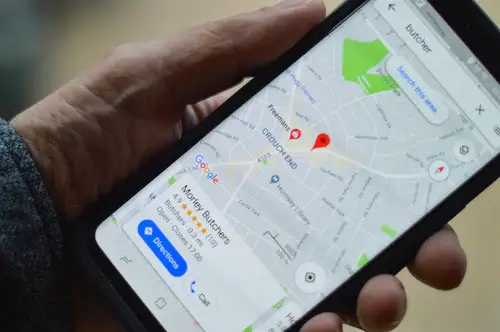
You can create custom maps with pins for specific stops or destinations and even add notes about each location.
This will help you understand how long your trip may take and give you a visual representation of what to expect.
Identifying Campsites Along the Way
When planning a trip, it’s essential to identify campsites along your route in advance to have somewhere safe to park overnight.
There are several online resources available that can help with this task, such as Reserve America or Recreation.gov.
These websites allow you to search for campsites by location, date, and amenities and make reservations online.
However, you prefer more flexibility and want to find free or cheap campsites. In that case, you can use other websites or apps that rely on user-generated information, such as FreeCampsites.net, The Dyrt, or iOverlander.
These platforms allow you to find dispersed or wild campsites not part of official campgrounds and read reviews and photos from other campers who have stayed there.
Researching Local Regulations and Permits
Researching local regulations and permits before embarking on a trip is essential to avoid violating laws.
Some areas may require permits for dispersed camping or have restrictions on campfires or other activities.
Be sure to research any areas you plan on hiking or exploring. Some trails may require permits or seasonal closures, so you must know these restrictions before starting your journey.
You can use websites like AllTrails or Hiking Project to find hiking trails near your campsites and get information on permits, fees, difficulty levels, and more.
Planning for Flexibility
While planning is essential, it’s also important to be flexible. Unexpected things can happen on the road, such as weather changes or unforeseen road closures, so make sure to have backup plans in place if needed.
Consider having a few different options for campsites or activities along the way so that you can adjust your itinerary as needed.
Being open to spontaneity and new experiences can make your adventure more memorable and enjoyable.
Tips for Comfortable Camping
Maximizing space inside the vehicle
One of the biggest challenges of car camping is limited space.
To maximize the space inside your vehicle, consider investing in storage containers that fit snugly against your SUV’s walls.
These containers are great for storing clothes, bedding, and other items that can be compressed and stacked.
You can install a roof rack or cargo carrier to store larger items like air mattress, camping chairs, or a cooler.
Another way to optimize your vehicle’s interior space is using collapsible or multi-functional gear.
For example, a collapsible table can be used as a cooking surface and workspace, while a multi-use knife can serve as both an eating utensil and a tool for preparing food.
Keeping organized on the road
Staying organized on the road will save you time and stress while camping. One way to keep organized is by packing items in clear plastic bags with labels indicating their contents.
This makes it easy to find what you need without digging through everything in your car.
Another tip for staying organized is to create designated areas within your vehicle for specific types of gear.
For example, designate a table in one area for cooking supplies and another for sleeping gear. This will make it easy to find what you need when setting up camp quickly.
Maintaining cleanliness and hygiene
Maintaining cleanliness when camping is crucial to avoid attracting unwanted pests or illness-causing bacteria.
Bring biodegradable soap and water for washing dishes and hands after using the restroom.
You should also bring trash bags to keep garbage contained while on the road. Store all trash in sealed containers until you reach designated areas with proper disposal sites.
To maintain hygiene, bring baby wipes or wet towels that can be used as an alternative cleaning method when showers are unavailable.
Pack extra hand sanitizer when you cannot access soap and water.
Activities to Enjoy on the Entire Trip
Hiking Trails, Fishing Spots, or Other Outdoor Activities Nearby
One of the biggest perks is exploring and enjoying nature in all its glory.
You can do many outdoor activities while on a camping trip, from hiking trails to fishing spots and everything in between.
The great thing about these activities is that they’re usually free or affordable, making them accessible to everyone.
If you’re into hiking, there are likely a ton of great trails near your campsite. Make sure to research the area beforehand to know what terrain you’ll be dealing with and what gear you’ll need.
Consider packing some snacks and plenty of water for the journey. You can use websites like AllTrails or Hiking Project to find hiking trails near your campsites and get information on permits, fees, difficulty levels, and more.
Similarly, if fishing is your thing, bring your gear to cast a line at nearby fishing spots.
Whether it’s a river or lake, there’s nothing quite like landing a big catch in the great outdoors.
You can use websites like Fishbrain or Fishing Spots to find fishing locations near you and get tips from other anglers.
Other outdoor activities to consider while camping includes swimming at nearby lakes or streams (if it’s safe), horseback riding on local trails (if available), kayaking or canoeing (if the equipment is available), or even rock climbing (if you have the proper gear and experience).
Board Games, Books, or Other Entertainment Options for Downtime
Of course, not every moment during your trip will be spent outside exploring nature.
There will also be downtime to relax with friends and family at camp.
For those moments when you want something fun and engaging to do without leaving campsite grounds, consider packing some board games or bringing along books.
There are so many amazing board games out there that are perfect for group play around the campfire.
Some popular choices include;
- I Should Have Known That (a trivia game),
- Otrio (a strategy game where players try to align three pieces of their color),
- Monopoly National Parks (a classic game with a twist featuring national parks),
- Trekking The National Parks (a cooperative game where players explore caves and rescue animals),
- The Appalachian Trail Game (a game where players hike the famous trail and face challenges),
- Werewolf (a social deduction game where players try to figure out who is a werewolf),
- The Amazing Labyrinth (a maze game where players try to collect treasures), and more.
If board games aren’t your thing, consider bringing along books or magazines for solo entertainment.
Reading is a great way to unwind and escape from the stresses of daily life, and there’s something special about getting lost in a good book while surrounded by nature.
You can bring books that match your camping themes, such as adventure stories, survival guides, or nature guides.
Or you can bring books completely different from your camping experiences, such as fantasy novels, romance novels, or comic books.
Whatever you read, make sure it brings you joy and relaxation.
Safety Considerations
First Aid Kits and Emergency Supplies
When preparing for an SUV camping trip, it’s essential to consider the possibility of accidents or injuries.
A well-stocked first aid kit is an essential item to bring along. Your kit should include bandages, gauze, antiseptic wipes, pain relief medication, and tweezers for removing splinters or ticks.
In addition to a first aid kit, it’s also essential to have emergency supplies on hand.
This includes items such as a flashlight with extra batteries, a whistle for signaling for help if needed, and a blanket or sleeping bag in case you need to stay warm in an emergency.
Always double-check everything!!
Communication Devices
When out in nature, you may find yourself without cell phone service. Bringing along alternative communication devices such as walkie-talkies or a satellite phone is always a good idea.
These devices can be helpful if you need to communicate with others in your group or contact emergency services.
Another helpful item is a GPS device to help you navigate unknown terrain. Some models even have built-in emergency beacons that alert authorities if you become lost or injured.
Wildlife Encounters
When camping outdoors, there’s always the possibility of encountering wildlife. It’s essential to understand the types of animals common in the area where you will be camping and how best to avoid them.
For example, if you’ll be camping in bear country, it’s essential to properly store your food so as not to attract them to camp.
Bear-resistant food containers can help prevent bears from getting into your supplies. Some popular models of bear-resistant food containers include the BearVault BV500, the YETI Tundra Cooler, and the Ursack Allmitey.
Additionally, it’s important not to approach wild animals and give them plenty of space.
Keep your distance and observe from afar – this will help keep you and the wildlife safe. Remember that animals are unpredictable, and it’s always best to err on caution.
The Benefits of SUV Camping
Flexibility in travel plans
One of the biggest advantages of camping is its flexibility in your travel plans.
Unlike traditional lodging, you’re not tied to a specific location or schedule. You can change course and explore new destinations on a whim.
In addition, you can stay as long or as short as you want at each location. If you stumble upon a hidden gem that captures your heart, nothing stops you from staying an extra night or two.
Compared to traditional lodging, SUV camping is cost-effective compared to traditional lodging option like hotels and resorts.
Depending on the make and model of your SUV, it’s possible to transform it into a comfortable place to sleep for a fraction of the cost of a hotel room.
Additionally, campsites are often significantly cheaper than hotel rooms, some even free! You’ll have more resources for activities and adventures with the money saved on lodging expenses.
Immersion in nature while still having access to modern amenities
One of the most rewarding aspects of camping is that it allows you to fully immerse yourself in nature while still having access to modern amenities.
With an SUV outfitted for camping, you can spend your days hiking through rugged wilderness areas and exploring stunning vistas before returning “home” for a comforting meal cooked over an open campfire.
And while sleeping under the stars might be rustic, modern gear like battery-powered lights and portable chargers ensure you can still enjoy many comforts from home.
Some of the best battery-powered lights for camping include the LE LED Camping Lantern, which puts off 1000 lumens and can run for up to 12 hours on a single charge, and the Ultimate Survival Technologies 30-Day Duro Lantern, which also puts off 1000 lumens and can run for up to 30 days on low mode.
These lights are perfect for illuminating your campsite or tent without relying on electricity or fuel.
Conclusion
SUV camping is a great way to enjoy the outdoors without sacrificing comfort or convenience. It offers flexibility, affordability, and immersion in nature while still having access to modern amenities.
With the right gear and preparation, you can turn your SUV into a cozy home away from home and explore new places and experiences.
Whether you’re looking for a solo adventure, a romantic getaway, or a family vacation, SUV camping can be the perfect option.
So what are you waiting for? Grab your SUV, pack your bags, and hit the road for an unforgettable camping trip.
And remember to check out our website for more tips and tricks on making the most of your SUV camping experience. Happy camping!
Can you camp out of an SUV?
Yes, SUV camping involves converting an SUV into a mobile camping dwelling, providing flexibility and cost-saving benefits by avoiding campground fees.
Can you sleep in an SUV camping?
Definitely. SUV camping involves creating a sleeping space within the vehicle by adjusting seats or installing a bed platform.
What Types of SUV Camping Tents are Available?
There are two types of SUV camping tents: rooftop and hatchback. Rooftop tents provide an elevated sleeping platform and quick setup. Hatchback tents expand sheltered space, maximizing vehicle interior use.
What are the Benefits of SUV Camping?
SUV camping offers secure shelter, mobility, and efficient space utilization. It provides comfort, flexibility in campsite choice, and effective storage for gear and sleeping arrangements.
How to Choose the Best SUV for Camping?
Choosing a camping SUV depends on reliability, safety, design, and price. Look for ample cargo space, fuel efficiency, and off-road capabilities.
What are Some Considerations when Converting an SUV for Camping?
Converting an SUV for camping might involve building a bed platform or removing seats, requiring vehicle modifications.


